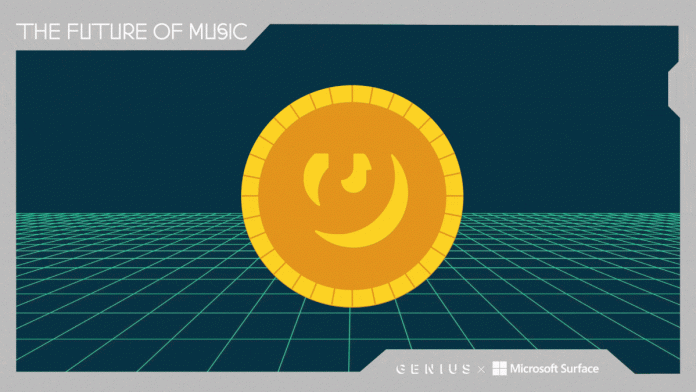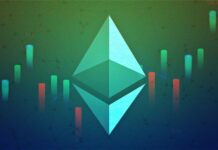Grammy-winning hip-hop producer !llmind has spent the last decade exploring the intersection between music, business, and technology. Now more than ever, with the rise of NFTs and cryptocurrency, there are myriad ways for industrious artists such as himself to make money. But the Brooklyn-based beatmaker and entrepreneur holds himself to a strict code of ethics.
“When you’re selling a product, whether it’s digital or physical, the question is, what problem are you trying to solve?” !llmind tells Genius. “Who are you communicating that to? And will this particular thing be responsible for making the world a better place?”
All of this might sound unusual coming from someone in the music industry, which isn’t exactly known for its altruism, but !llmind walks the walk. In 2011, after making his name by crafting tracks for artists like 50 Cent and Scarface, the man born Ramon Ibanga, Jr., released his first Blap-Kits digital drum kit—a collection of percussive sounds he’d created over the years. Previously, aspiring producers had to dig through stacks of dusty vinyl records to find snares and cymbals to sample. With Blap-Kits, !llmind aimed to change all that. He wasn’t sure it would sell, but he knew that he would have benefited from such a thing when he was starting out.
On a whim, !llmind threw Blap-Kits up on his blog with a price of $20, and when he woke up the next morning, he discovered that he’d made $2,000. A second volume wound up selling double, and over the years, !llmind has built Blap-Kits into a highly lucrative business. In 2021, revenue exceeded $1 million.
From there, !llmind says, it was a “natural progression” to the world of NFTs, his primary concern these days. For the uninitiated, an NFT, or non-fungible token, is a unit of data used to authenticate and prove ownership of something—whether it’s a jpeg, a pop song, or even a house. This is done via the blockchain, an encrypted ledger that cannot be altered. “It’s this really intuitive, reliable, complex store of information,” says !llmind. “That’s how I look at it.”
Last year, !llmind issued the world’s first-ever sample-pack NFT. For the price of 4.5 Ethereum (nearly $12,000, as of March 2022), the purchaser gained access to 10 exclusive melodic loops that—as per the “smart contract” baked into the NFT—can be manipulated and monetized in various ways. For instance, the NFT owner might use the loops to create new songs that can then be licensed for film or TV. According to !llmind, such arrangements could make it easier for artists to collaborate, create songs built on samples, and get paid for their work.
“The big problem that NFT is going to solve in music is the fact that we don’t have to use outdated paper contracts anymore and negotiate in the same way that we’re currently negotiating,” !llmind says. “You hear stories of producing a song, or being involved with a song, and then signing a 100-page contract. Which sounds ridiculous, but that’s what’s happening. Imagine a way to streamline all of this into a [system] where all parties agree on a smart contract. It’s unbreakable. It’s permanently there. And anytime there’s a royalty or a payment that’s owed to you, it’s automatically transferred via cryptocurrency. I think that’s immensely powerful.”
The smart contracts included with NFTs can vary greatly, and that also creates opportunities for artists to create unique experiences for their fans. If, for example, you buy an NFT associated with a song by your favorite rapper or rock band, you might wind up owning a piece of the publishing—or you might simply get a rare collectible whose authenticity is verified by the blockchain.
“They’re equally legitimate,” !llmind says of these two types of NFT contracts. “The collectible-music thing is great as well. It’s like owning a Michael Jordan rookie card. It’s a piece of cardboard, and I don’t own the usage rights of anything involved with Michael Jordan, but I do have that physical card, and there’s someone out there willing to pay a premium for it because it’s rare and because it’s an original.”
Ever the innovator, !llmind is getting ready to launch Squad of Knights, a collection of 8,888 NFTs that will allow token holders—all of them musicians—to meet up in the Metaverse and in recording studios. “Essentially, what I’m doing is incentivizing and gamifying the experience of musicians coming together to make music together, getting to know each other, and building lifelong relationships,” he says. “And I’m rewarding them for doing it.”
!llmind can’t predict the future of NFTs, crypto, and music. He knows that some fans remain skeptical of the technology, and he’s the first to admit that scammers and bad actors are giving the whole thing a bad name. But he genuinely believes that NFTs and cryptocurrency offer hope to artists who’ve long been treated unfairly by the centralized powers of the music industry.
“What I want the future to look like is artists, songwriters, rappers, singers, music producers, engineers, and creators getting paid properly for what they release, maintaining ownership of what they release, and maintaining creative control and freedom to move around and do what they want with their art and with their music,” !llmind says. “Those are the three pillars of what a creative artist in music is waiting to do.”
Credit: Source link






















 Bitcoin
Bitcoin  Ethereum
Ethereum  Tether
Tether  Solana
Solana  USDC
USDC  Lido Staked Ether
Lido Staked Ether  XRP
XRP  Dogecoin
Dogecoin  Toncoin
Toncoin  Cardano
Cardano  Shiba Inu
Shiba Inu  Avalanche
Avalanche  TRON
TRON  Wrapped Bitcoin
Wrapped Bitcoin  Polkadot
Polkadot  Bitcoin Cash
Bitcoin Cash  Chainlink
Chainlink  NEAR Protocol
NEAR Protocol  Polygon
Polygon  Internet Computer
Internet Computer  Fetch.ai
Fetch.ai  Litecoin
Litecoin  Uniswap
Uniswap  Dai
Dai  LEO Token
LEO Token  Ethereum Classic
Ethereum Classic  Hedera
Hedera  Aptos
Aptos  Render
Render  First Digital USD
First Digital USD  Pepe
Pepe  Cosmos Hub
Cosmos Hub  Cronos
Cronos  Mantle
Mantle  Stacks
Stacks  Filecoin
Filecoin  Immutable
Immutable  dogwifhat
dogwifhat  Stellar
Stellar  Wrapped eETH
Wrapped eETH  XT.com
XT.com  Renzo Restaked ETH
Renzo Restaked ETH  Bittensor
Bittensor  OKB
OKB  Optimism
Optimism  Arbitrum
Arbitrum  The Graph
The Graph  Maker
Maker 
